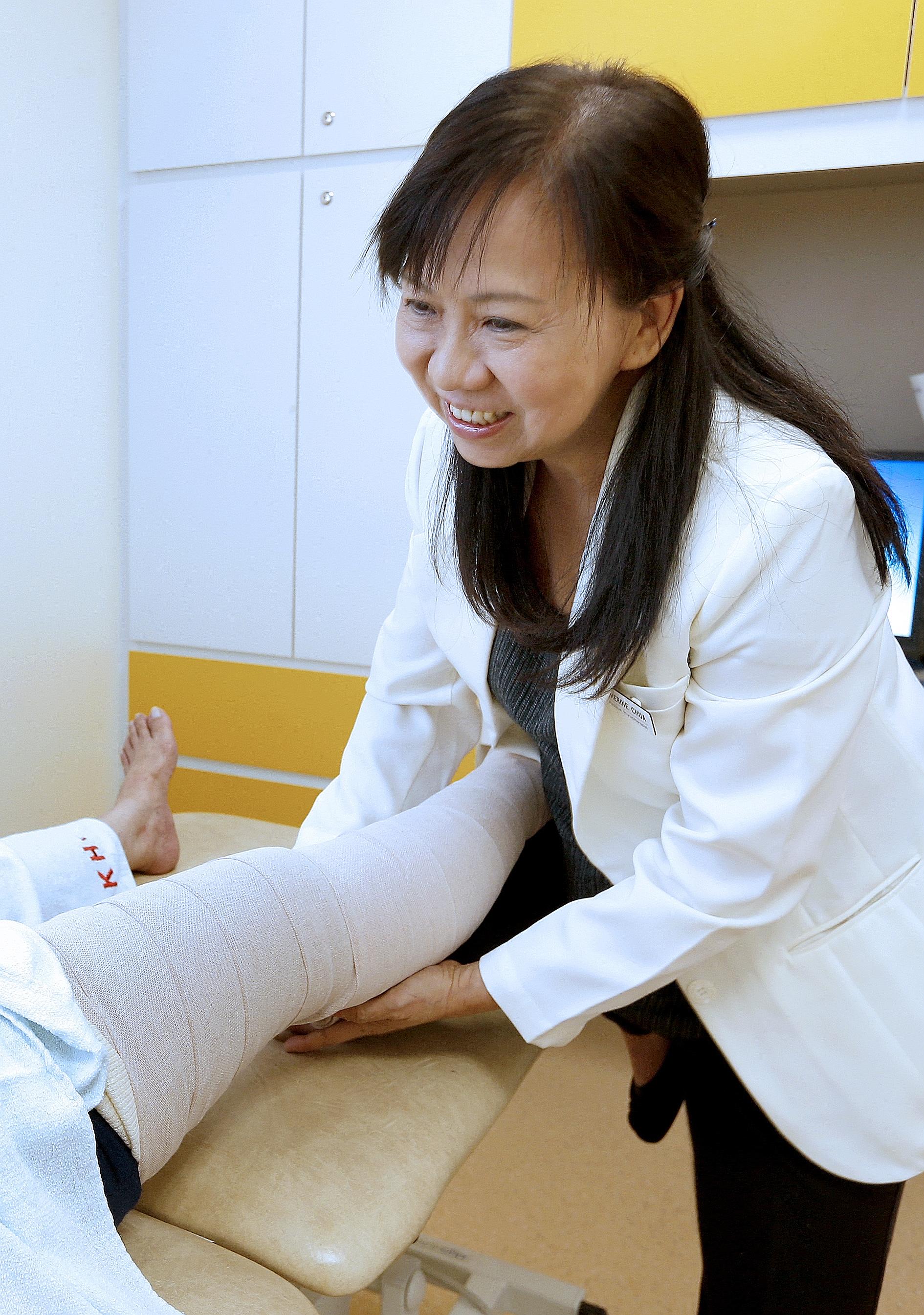Happy to keep women in the pink of health
Physiotherapist Catherine Chua tells Joan Chew why she chooses to specialise in female bodies
Sign up now: Get ST's newsletters delivered to your inbox

Ms Catherine Chua says that physiotherapy has expanded from basic obstetrics and gynaecology to other areas including menopause and incontinence.
ST PHOTO: LAU FOOK KONG
Joan Chew
Follow topic:
Q I specialise in conducting physiotherapy for women because...
A Women make up over half of the world's population yet, for many years, their health has been overlooked. This has changed, and physiotherapy has expanded from basic obstetrics and gynaecology to other areas such as menopause, incontinence and sexual dysfunctions.
Q Women's bodies are fascinating because…
A The female body goes through many changes during adolescence, pregnancy and menopause.
For instance, hormonal changes during pregnancy cause joint laxity and instability, which may lead to changes in the woman's posture and, subsequently, strains and pains in the joints.
-
BIO BOX
CATHERINE CHUA
Age: 58
Occupation: Senior principal physiotherapist at the rehabilitation department of KK Women's and Children's Hospital (KKH)
Health care became a calling for Ms Chua midway through her career.
She started out as a laboratory technician and remained one for more than six years. She then became a hairstylist for over 10 years.
But she never felt entirely satisfied with what she was doing, so she took up an undergraduate degree in health sciences at the University of Sydney in Australia, graduating in 2001 at the age of 44.
Following that, she gained two postgraduate certificates in 2004 and 2010 from Melbourne University. Both are related to women's health. In 2012, she completed a master's degree in physiotherapy from there as well.
Ms Chua joined KKH in 1998, and has 16 years of experience treating women and children.
Now, she works mainly with women, handling their antenatal and postnatal care, and addressing problems that include incontinence and pelvic floor weakness.
She also manages patients who have had breast or gynaecological cancer.
Her husband is a 60-year-old taxi driver. They have a son aged 23.
Q One little-known fact about physiotherapy for women is...
A At least 30 per cent of women do not know how to perform a pelvic floor muscle contraction correctly. This is the upward and inward lifting of these muscles towards the belly button. Common errors include contracting the buttock, hip or abdominal muscles, and this is often combined with holding one's breath or pushing down, instead of lifting up, the pelvic floor muscles.
Q What I do is like being...
A A car mechanic who restores and reconditions a car. Just like a car with parts that can break down, a body goes through wear and tear and may require an overhaul. The car mechanic listens to how the engine runs and test drives it after the repair work is done.
Likewise, I work with the patient to restore her health and well-being in a comprehensive manner.
Q A typical day for me starts...
A With driving to work before 8am every weekday. As the section head of physiotherapy, I manage a team of 40 physiotherapists. In addition, I run about three or four sessions of physiotherapy a day, with each session lasting about an hour. Twice a week, I conduct exercise classes for patients with low bone density, who have either osteopenia (a precursor to osteoporosis) or osteoporosis.
After a quiet dinner, I will settle in front of the computer or television to unwind before I go to bed.
My son shares my passion for music and we sometimes sing together in church.
Q I come across all types of cases...
A Including women and children with orthopaedic or neurological conditions. Currently, I specialise in women's health.
I remember a breast cancer patient who was cheerful throughout her chemotherapy and other treatment for lymphoedema in the arm.
When the doctor said her condition was going downhill, she joked that she had brakes to stop it from worsening. She has since died.
Q I love patients who are...
A Able to accept and take charge of their condition, which paves the way for us to work together to improve their health.
Q Patients who get my goat are...
A Those who ignore my advice. For example, swelling of the arms or legs, or lymphoedema, can be managed and improved by wearing compression garments, but some patients do not do it.
Such swelling often occurs after cancer surgery if the lymph nodes are also removed to stop the spread of cancer.
Q Things that put a smile on my face are...
A When patients look forward to my physiotherapy sessions.
Some of the treatments can be painful, yet the patients cannot seem to get enough of it. They often say they felt better and more relaxed after that.
Q It breaks my heart when...
A Patients who are cancer-free for many years suffer a relapse and die.
Q My best tip...
A Movement and exercise are the best ways to promote health, so one should never be too tired to exercise. Age is not an excuse to stop exercising.

